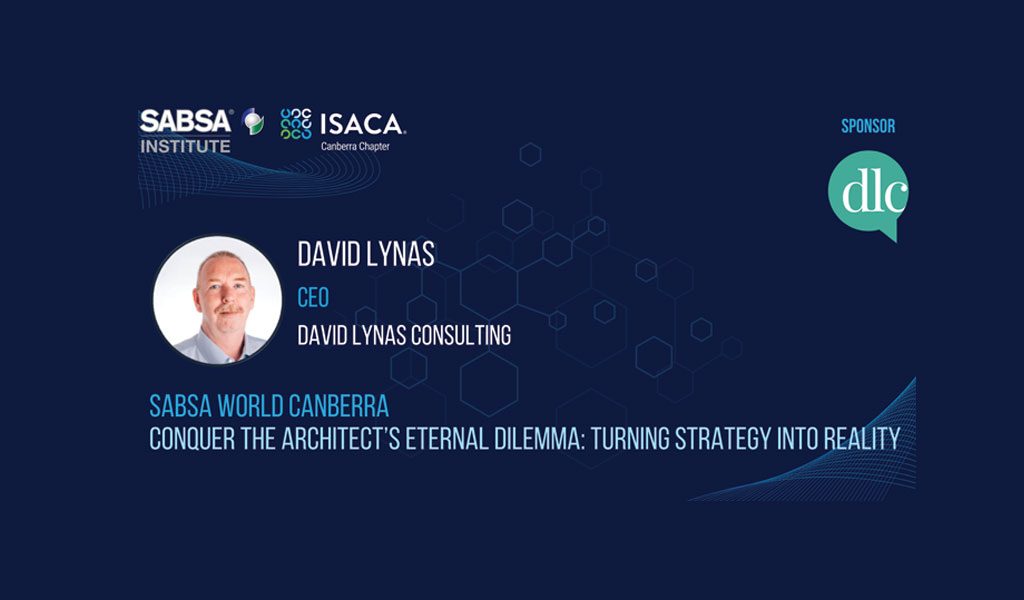Use the form below to access the slides from ISACA Ireland SABSA Lunchtime Masterclass, 25th April & 13th June 2025....
James Lynas
SABSA World
Use the form below to access the slides from SABSA World Sydney, 24th March & SABSA World Melbourne, 25th March....
SABSA World Australia – Sydney & Melbourne Events March 2025
David will be presenting on "How to Solve Complex Security Problems with SABSA at SABSA World events in Sydney and Melbourne this month. Registration is free of charge on the SASBA World Australia website.
Australian Cyber Conference Canberra, 18-19 March 2025
Find us on Stand 60 at the Australian Cyber Conference 2025, 18-19 March at the National Convention Centre Canberra.
Enterprise Security Architecture (ESA) Principles
An explanation of SABSA®’s Principles for Enterprise Security Architecture, revealing the most common client mistakes we encounter, and demonstrating how we at David Lynas Consulting use ESA Principles.
COSAC 2025 – Call for Papers
The COSAC 2024 Call for Papers is now open COSAC 2025 will take place Sunday 28th September - Thursday 2nd...
Enterprise Security Architecture (ESA): What Is It and Why Is It (Really) Important?
What is “Architecture”? What is “An Architect” and what does an “Architect” do? And how does that relate to the “Enterprise” way of thinking to deliver business value particularly in the field of information/cyber security?
W100 – The SABSA White Paper
An executive summary of the SABSA Method, it’s tools, techniques and concepts. White Paper from The SABSA Institute.
Australian Cyber Conference, 26-28 November 2024
Find us on Stand 10 at the Australian Cyber Conference 2024, 26-28 November at Melbourne Convention & Exhibition Centre.
W103 – SABSA Responsibility Assignment Modelling
An introduction to SABSA Responsibility Assignment Modelling and the abstract and conceptual views of stakeholders’ roles and responsibilities.
SABSA World Canberra – 21 November 2024
Conquer The Architect’s Eternal Dilemma - Turning Strategy into Reality - Join David for a joint event between ISACA Canberra Chapter, AISA ACT Branch and The SABSA Institute.
R101 – The SABSA Matrices 2018 Release Notes
An update to the SABSA Matrix™ and the SABSA Management Matrix™ in 2018 and an analysis of the changes made in that update.









